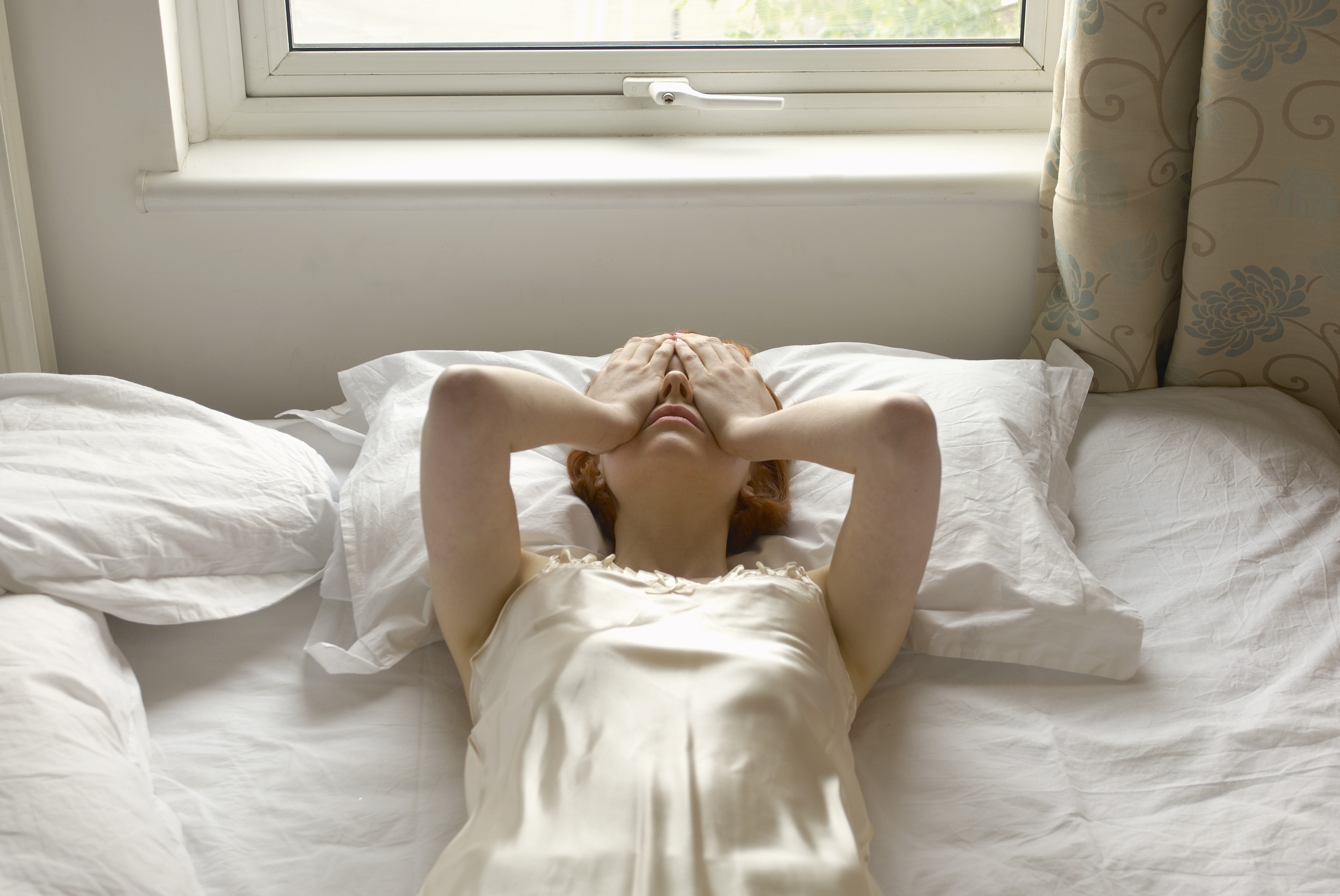Could this new electrotherapy device cure anxiety?

Anxiety is a problem affecting more and more of us every day - in fact, it's thought that 1 in 5 adults currently suffer symptoms of anxiety and depression.
And there are ways to address the symptoms, and help you cope with the often debilitating condition.
Can electrotherapy cure anxiety?
A new trial by the NHS has claimed that a new wearable device may actually help to ease symptoms in a fast and rather simple way. In the study, published in the Journal of Effective Disorders, 161 volunteers, suffering from Generalised Anxiety Disorder, were given cranial electrotherapy stimulation (CES), in the form of an Alpha-Stim AID.
The aid is a small device which clips onto your earlobe (imagine a pair of iPhone headphones), and works to promote a more relaxed mental state, by transmitting tiny micro-currents to your brain, in the form of tiny electric shocks. However, these shocks cannot be felt by the wearer.
Alpha-Stim is widely recognised as a safe device, ideal to be used at home. But this is the first time in NHS history that its benefits for anxiety have been fully explored.

The study found that almost half of the NHS volunteers saw significant improvement in their anxiety - and after six months, 48% of the people surveyed considered themselves to no longer be experiencing anxiety.
Co-author of the study, Richard Morris, and professor of psychiatry at Nottingham University, told The Times, “Alpha-Stim CES was more effective at achieving remission than we expected. As well as improvements in anxiety, there were improvements in depression and insomnia.”
Sign up to our free daily email for the latest royal and entertainment news, interesting opinion, expert advice on styling and beauty trends, and no-nonsense guides to the health and wellness questions you want answered.
It's reported that NICE will now discuss the treatment with official at the NHS, in order to suggest it as a treatment for anxiety.
At the moment, sufferers are offered group therapy sessions, self-help sessions online, or cognitive behaviour therapy (either online, in groups, or one-to-one), as tactics for dealing with anxiety.
But the electrotherapy device could well be a useful alternative to treatment, for people looking for a different option - or those unhappy with the long NHS wait times that often come with anxiety treatments.
Patients waiting for CBT can often wait upwards of eight weeks. A speedier, at-home option would likely be welcomed.
Amy Hunt is an experienced digital journalist specialising in homes, interiors and hobbies. She began her career working as the features assistant at woman&home magazine, before moving over to the digital side of the brand where she eventually became the Lifestyle Editor up until January 2022. Amy won the Digital Journalist of the Year award at the AOP Awards in 2019 for her work on womanandhome.com.

